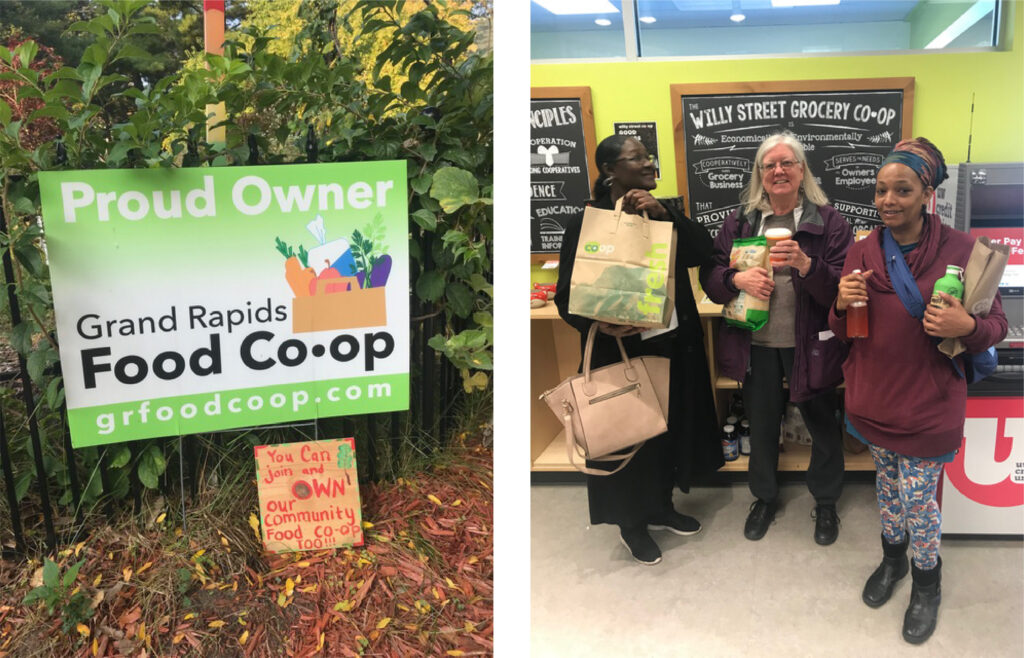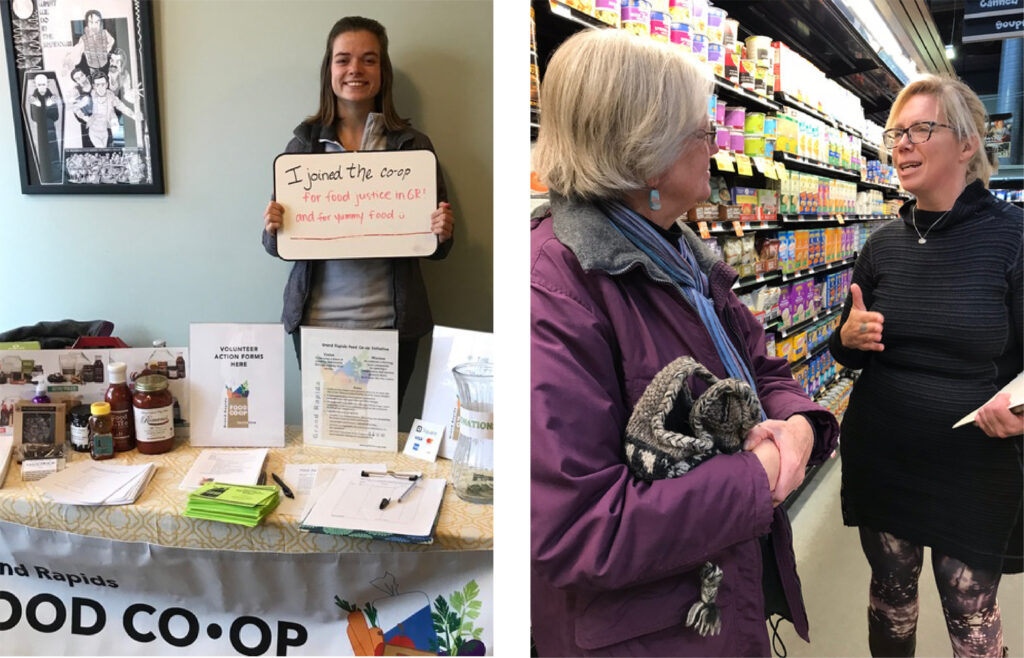The Grand Rapids Food Co-op was founded in 2015 to connect the Grand Rapids community to quality, local food. We had the chance to sit down with the founder and president, Linda Jones, and discuss the opportunities cooperative ownership brings to a community as well as the headwinds they sometimes face. As GRFC is nearing the halfway point in reaching their 1,000 owners goal, we wanted to highlight the hard work they’re doing to make sustainable change in our community toward more resilience and deeper equity. If you would like more information on the project, reach out to grfci.info@gmail.com or become an owner directly through their website at grfoodcoop.com.
Q: What do you do?
A: I am the founder and president of the Grand Rapids Food Co-op.

Q: How did you get there?
A: I was frustrated with the distance I had to travel from my home in Heritage Hill to get to a grocery store with decent produce and no store was really meeting my needs. I knew about food co-ops from living in Austin, Texas and I thought Grand Rapids should have one, too. Co-ops are the best way to get a community empowered through co-ownership of a business that they want. After I met Deborah Eid and she also thought Grand Rapids should have a co-op grocery, we got to work figuring out how to do that.
Q: What impact are you striving for?
A: Food co-ops have strong impacts on many levels. They assure that the decision making power and the financial rewards of the business are shared equally between all the owners of the co-op. Co-ops show a different way of organizing our economy around shared equity and power. Co-ops are based on values and principals that all co-ops around the world embrace so they are an agent of peace and connectivity. Our city is in great need of better fresh food access in central GR. The food co-op will help support all of our local and urban farmers and local food producers by giving them a place to sell their products. The co-op will source as much as we can locally, which will help lower the miles our food travels. We will source sustainably grown food as well from around the world. We will also be a great gathering place for the community with a place to order food and drinks and settle into a cozy dining area. If we have the room, we plan to have a community room where other organizations can gather for meetings and functions.

Q: What does a resilient future mean to you?
A: Our resilient future includes moving away from the capitalistic marketplace where a few prosper and have decision making power and many labor without agency and control. Our city government structure needs to change to support these cooperative, citizen-led changes. We must have the marketplace structured to reward service to the greater good of the planet and people and this can happen through the cooperative model of business.
Our resilient future includes moving away from the capitalistic marketplace where a few prosper and have decision making power and many labor without agency and control.
Q: What barriers are you facing in your work?
A: The co-op model is dependent, and rightly so, on the community buying shares in the co-op. Educating people about what a co-op is and how important it is for the community to buy in to our vision is taking time. So far we have about 450 owner households toward our goal of 1000 owners. When we reach 800 owners we can enter the next phase of growth, which entails rounding up the funding for the grocery store. The funding will come from owner loans, commercial loans and grants. We are learning that many start-up food co-ops take 7 to 10 years from the time they incorporate to the time they open their grocery store. We are on track to follow that timeline.
Q: What would we find unique about your organization and the way you operate?
A: The most unique thing about co-ops is that the community owns the store: the food on the shelves will be what our owners want there, the hours the store is open will be what they need, the staff will be paid a living wage, the local food web will be strengthened, and the local economy will grow.
Also, GRFC has used the sociocratic method to organize our business and guide our decision making process from the beginning. Sociocracy makes sure all voices are heard, that decisions are made by consent of all affected by the decision, the business is organized by interlocking circles which each have specific domains and missions, the circles communicate both up and down the organization and policies are crafted to have a timeline for evaluation. Sociocracy is serving us well. We are happy to share our experience with others who may be interested in adopting this innovative model.
Q: Is there anything else you’d like to share with us?
A: I have been able to meet so many people in town that I would never have met without this project. There is so much energy and vision for progressive change to bring Grand Rapids closer to being a healthy, nourishing, sustainable city for everyone. I’m happy to be a social innovator, bringing the co-op model back to Grand Rapids alongside all the others who have joined us.
To learn more about the Grand Rapids Food Co-op and how to become a co-op owner, visit grfoodcoop.com.
In this series, we highlight individuals and organizations that we have observed working toward creating resilient futures — anticipating and provoking atomic change toward sustainable outcomes for their communities and the world.

